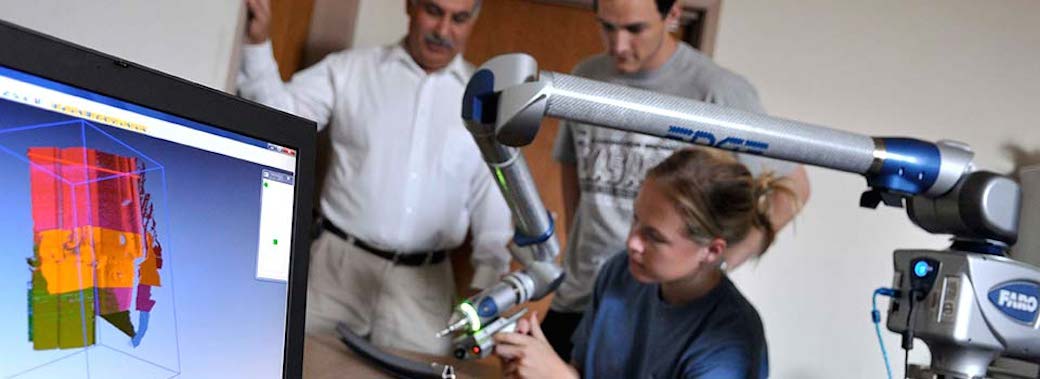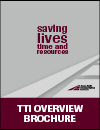
Researchers in the Center for Transportation Computational Mechanics have dedicated access to an array of high-speed computers that enable large, detailed impact simulations to be run in a short time period.
The Center for Transportation Computational Mechanics (CeTCoM) at TTI is one of four university-based centers established by the Federal Highway Administration (FHWA). The Center is supported by research projects sponsored by federal and state transportation agencies and private industry. Due to the prohibitive costs associated with crash testing, engineers are relying more and more on sophisticated analytical models and nonlinear finite element codes to evaluate, design, and analyze roadside safety features. Although the center’s primary focus is roadside safety, the activities of the center are not limited to this area. The center also actively works on project in other areas such as design and evaluation of physical perimeter security devices and dynamic analysis of bridge structures, soils, and pavements.



